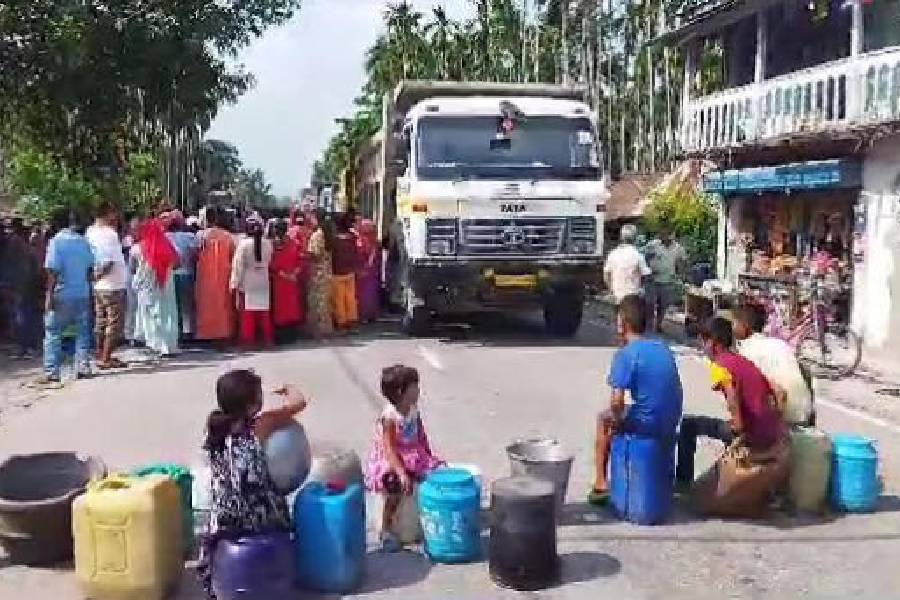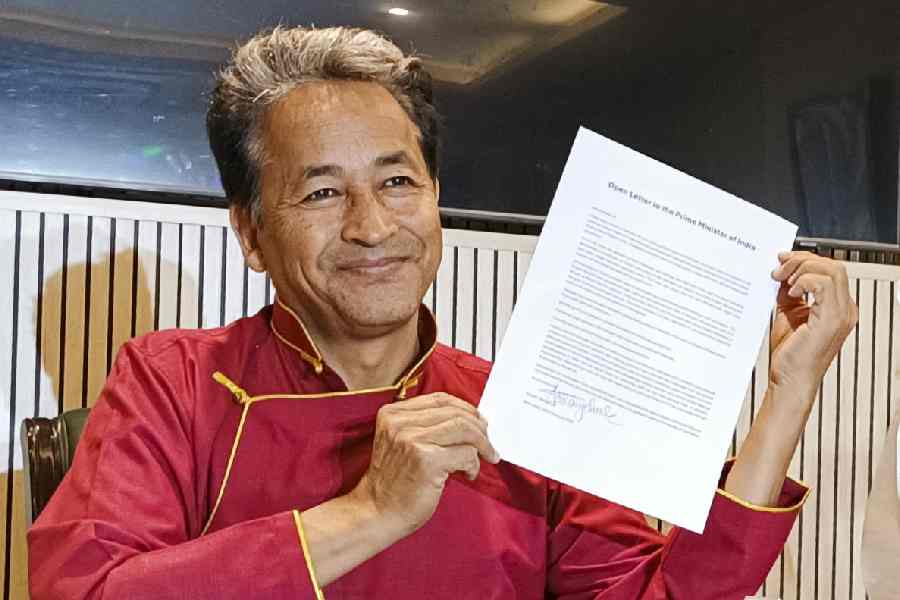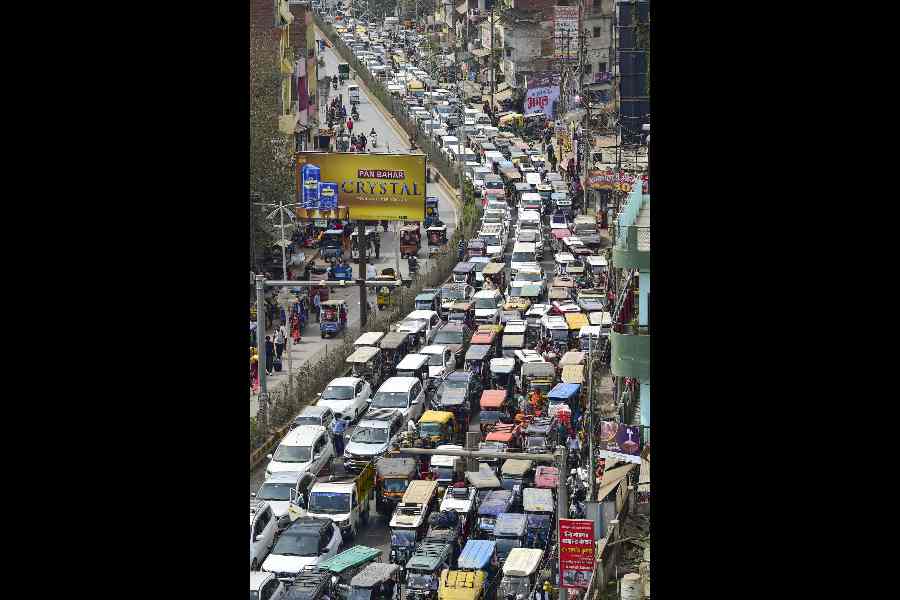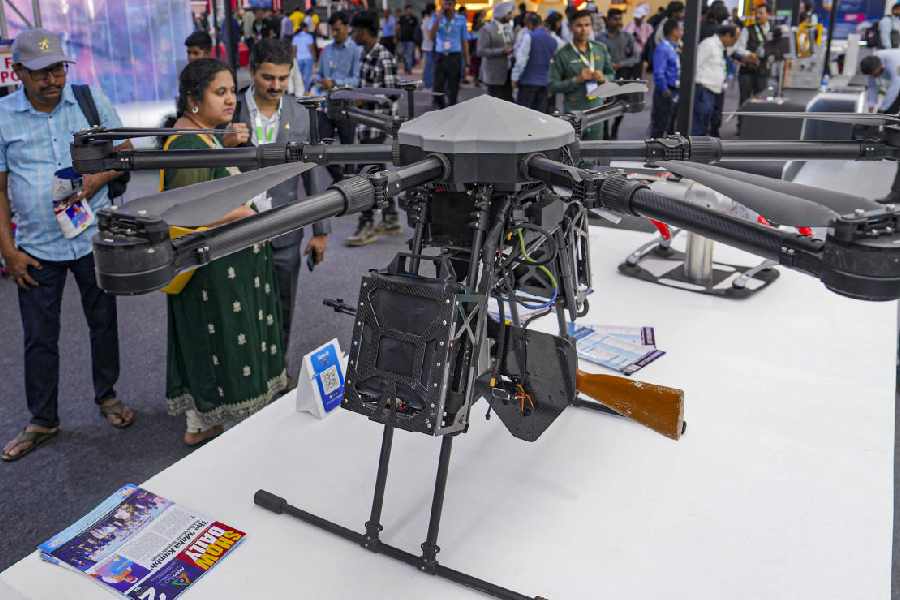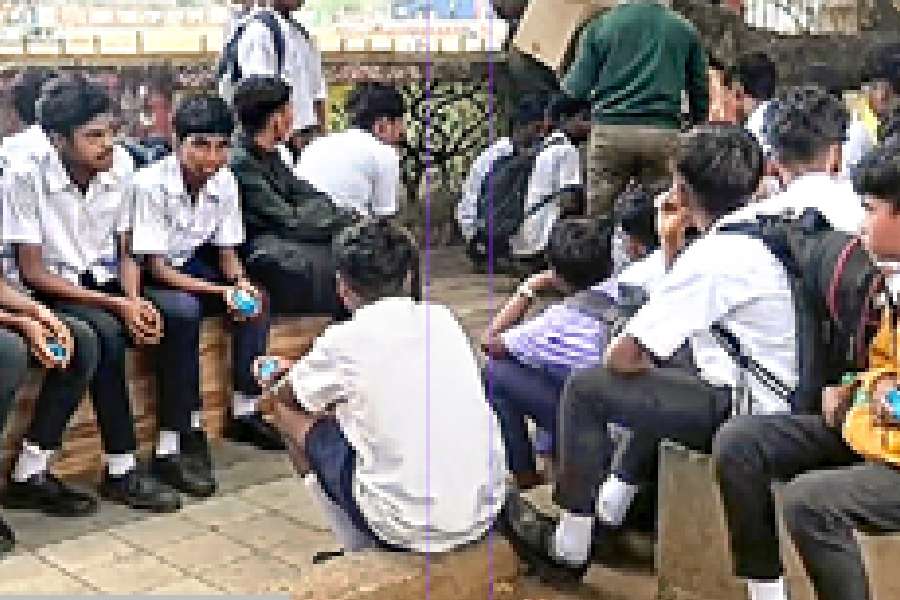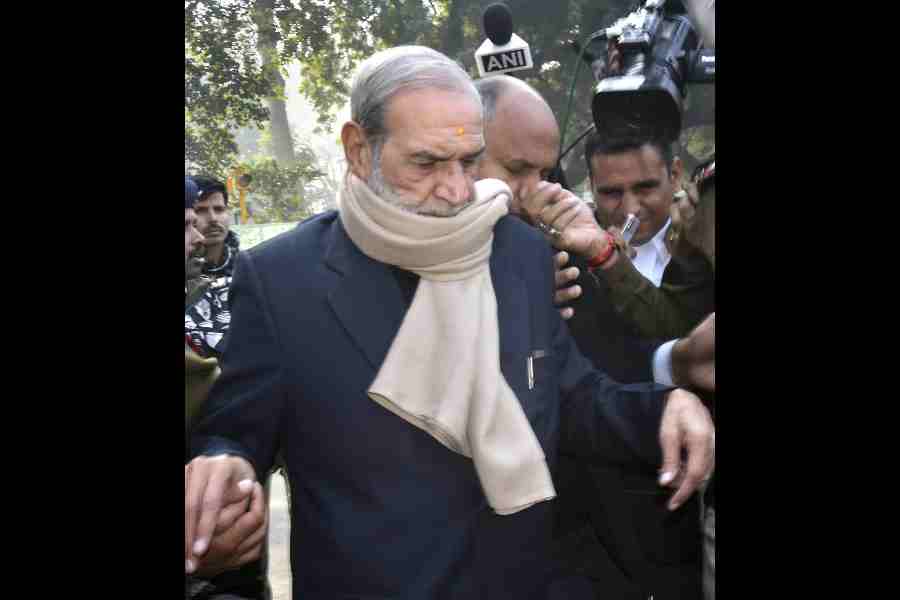Traffic on the Banarhat-Samtse road in Jalpaiguri that connects neighbouring Bhutan came to a halt for around eight hours on Thursday as over 400 residents blocked the stretch to protest against an acute water crisis.
A section of workers and their families from the Chunabhati tea estate and an adjoining forest village of the same name went to the road that heads to Samtse district of Bhutan and resorted to the blockade around 6am, asking the administration for water.
“We are facing an acute water crisis these days and have to buy water for drinking and cooking. For other purposes, we have to lug in water from far-flung places. This cannot go on for years. The administration should take steps to provide us with water,” said Premmaya Tamang, a protester from the Chunabhati tea garden.
Protesters lined up pitchers, buckets and canisters on the road and sloganeered against the administration’s alleged apathy. Altogether, some 3,500 people live in the tea estate and another 2,500 in and around the forest village. All 6,000 are facing the problem, they said.
Sources said that earlier, water was drawn from some hilly streams of Bhutan to the garden through pipelines.
“The supply stopped some months back because of some faults in the pipes. The water supply became inadequate but we somehow managed. But now, the situation is terrible. At times, we don’t even have water to wash our hands after work,” Gitalmaya Kali, a resident of the tea garden, said.
A team from Banarhat police station reached the spot around 7.30am and spoke with protesters, but the latter refused to lift the blockade that held up hundreds of vehicles.
Every day, vehicles, especially those with goods, take this route to enter Bhutan via Samtse. Many Bhutanese people use the road to reach Siliguri and nearby places.
Around 2pm, Ashok Das, an official of the state PHE department reached the spot from Jalpaiguri and spoke with the protesters. He promised arrangements to supply water in the area. After this assurance, the protesters dispersed and traffic was finally restored.
Das, an assistant engineer of the PHE department, said they had taken up the task to install three deep tube wells in the area around six months back.
“As the area is in the foothills of Bhutan hills, it is tough finding out the underground water level here. We understand the water crisis that the residents are facing. Till the tube wells are ready, we will engage tankers to supply water, to them,” Das said.

